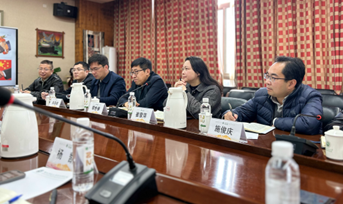On the morning of March 20th, the Party and administrative leadership of the College of Engineering, along with a team from the Modern Vocational Education Research Institute, visited the Institute of African Studies for a thematic symposium on African vocational education development. Both parties engaged in in-depth discussions on topics including the College of Engineering's doctoral program application, research on African vocational education, and cross-border cooperation,jointly exploring new pathways for disciplinary innovation. Attendees included Dean E Shiju and Party Secretary Cui Xueping from the College of Engineering, Dean Liu Hongwu and Party Secretary Wang Heng from the Institute of African Studies, alongside other members of both institutes' leadership teams and research staff.
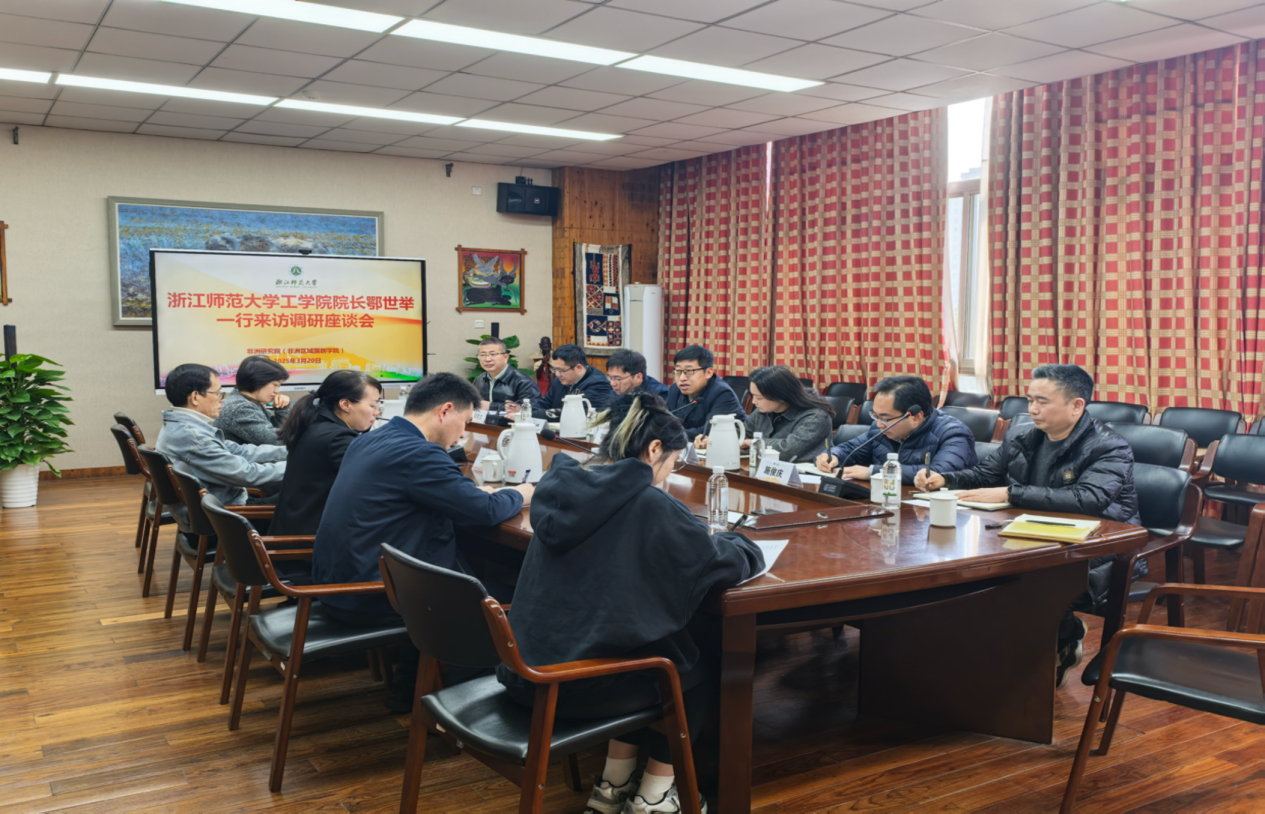
Dean E Shiju expressed sincere gratitude to the Institute of African Studies for its long-standing and substantial support for the College of Engineering. He systematically outlined the College's disciplinary development structure and the progress of its doctoral program application,highlighting the alignment directionsbetween itsstrengths in disciplineslike Transportation and Mechanical Engineering and the industrial demands of African nations.Dean Tang Linwei of the Modern Vocational Education Research Institute presented ideas and plans for how the discipline of Vocational and Technical Education can support thepeak discipline constructionof Regional and Country Studies. He focused on aspects such asachievement cultivation, project collaboration, and talent development. Dean Tang proposed integrating the advantages of both sides to jointly conduct vocational education research andexplore new modelsfor cultivating vocational education talents for Africa.
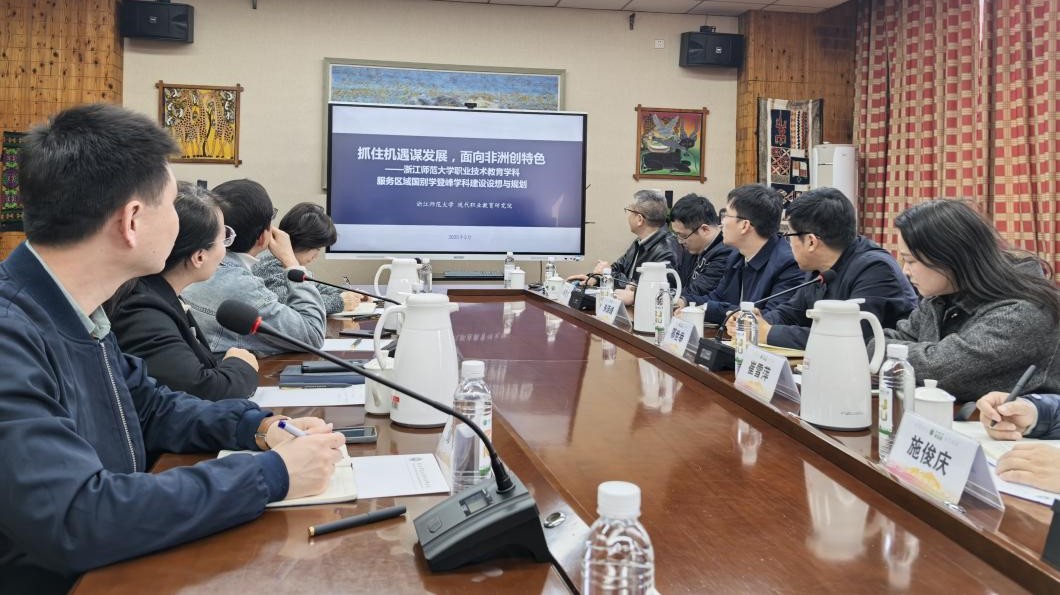
Dean Liu Hongwu highly commended the College of Engineering for its achievements in discipline development and university-local cooperation. Based on national strategies and the university's needs for first-class discipline construction, he proposed constructive suggestions: First, adhere to the concept of distinctive development by focusing on China-Africa "Three Networks and Two Modernizations" cooperation, guiding doctoral program applications with innovative approaches to achieve "uniqueness where others have none, superiority where others have some, and distinctiveness where others are strong," thus realizing differentiated development and pioneering characteristics for degree programs. Second, build a landmark achievements system through jointly compiling book series on China-Africa cooperation in transportation, electromechanics, and vocational education, while establishing industry-academia-research demonstration platforms in countries like Nigeria, Egypt, and South Africa to enable cooperative R&D and technological commercialization. Third, serve the national top-level strategic plan by emphasizing "internal linkage and external collaboration," proactively addressing the nation's practical needs in talent cultivation, technology transfer, and international cooperation, while engaging in multilateral collaboration with African countries to broaden disciplinary research horizons, enhance professional service capabilities, and cultivate interdisciplinary talents proficient in both African affairs and specialized knowledge.
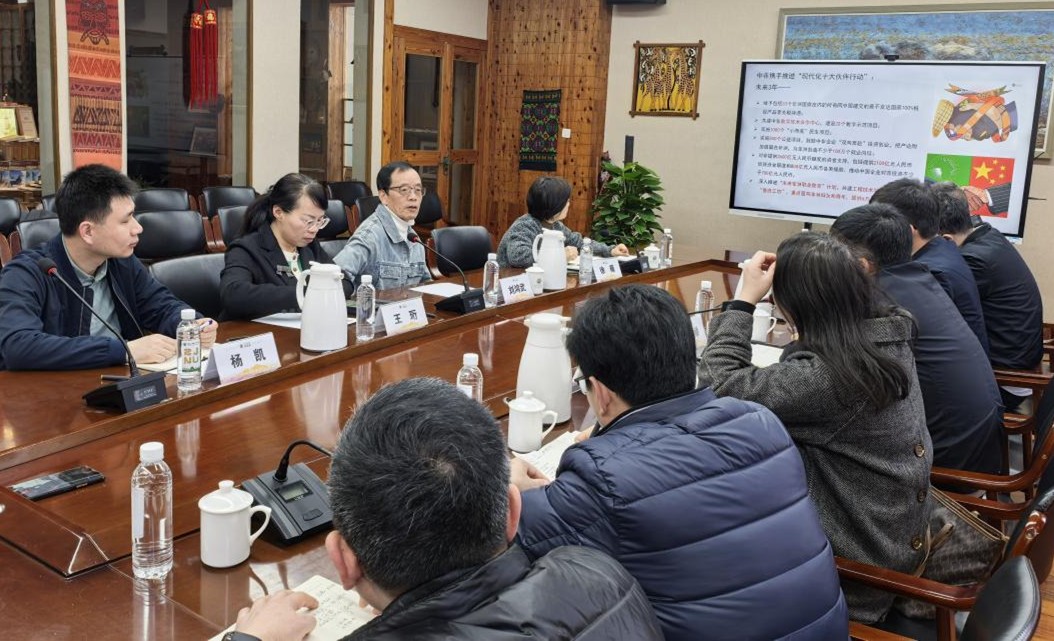
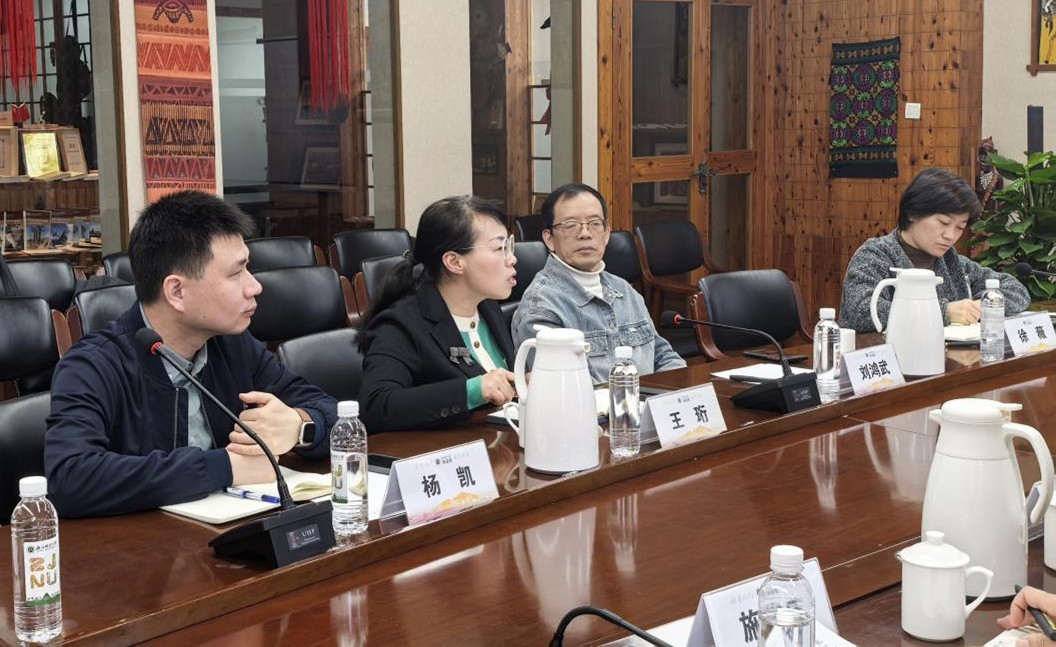
During the symposium, both parties reached a consensus on establishing aregularized collaboration mechanism. Party Secretary Wang Heng emphasized the need toclosely aligndisciplinary development with Africa's industrialization process,in strict accordance withthe requirements forhigh-quality development of the Belt and Road Initiative. Party Secretary Wang Heng, Vice Dean Yang Kai, and Vice Dean Xu Wei offeredconstructive suggestionsregarding the College of Engineering's talent cultivation, achievement development, and social services. Their suggestions were based on thecurrent state of China-Africa cooperationand the university's needs.
Secretary Cui Xueping expressed gratitude for the valuable suggestions put forward by the leadership of the African Studies Institute. Dean E Shiju concluded the symposium, which marks a new stage of strategic alignment in the collaboration between the two institutes. Through interdisciplinary integration, both parties will serve the broader national strategy of educational opening-up and contribute the collective wisdom of Zhejiang Normal University (ZJNU) to building a China-Africa community with a shared future in the new era.

